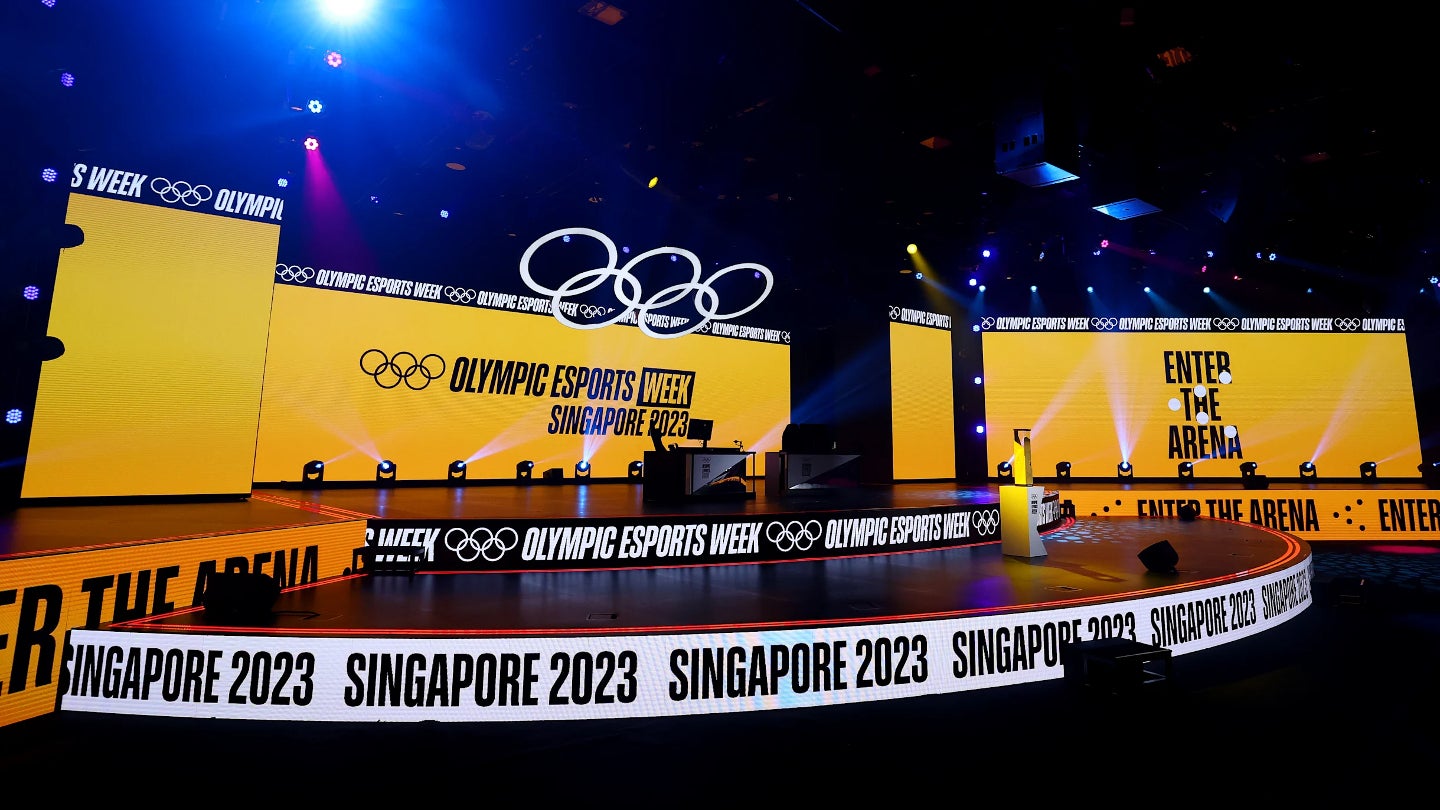
The International Olympic Committee (IOC) will struggle to attract traditional esports viewers due to the games it has chosen to feature and has chosen the wrong approach to develop a presence in the market, according to a senior commercial figure within the industry.
The IOC held its first Olympic Esports Series in 2023, a virtual and simulated sports competition, created in collaboration with international federations and game publishers.
The event, which took place at Singapore’s Suntec Centre, featured Tic Tac Bow (archery), Chess.com, Just Dance, Gran Turismo (motorsport), Tennis Clash, WSBC eBaseball: Power Pros, Zwift (cycling), Virtual Regatta (sailing), Virtual Taekwondo, a target shooting game within Fortnite, and the more popular esports title Rocket League.
Those within the gaming and esports communities, however, have doubts about how the IOC is approaching esports.
Jordan Bedford, brand partnerships manager at Giantx, the new company formed via the merger of British esports organization Excel Esports and Spanish esports institution Giants Gaming, does not believe that the games chosen will attract the right audience.
He said: “I think they [the IOC] are challenged with attracting a younger audience and they will look at esports to try and do that. But looking at the game titles that they chose, these are not esports audiences, they're just simulations of Olympic sports.

US Tariffs are shifting - will you react or anticipate?
Don’t let policy changes catch you off guard. Stay proactive with real-time data and expert analysis.
By GlobalData“So they may be received well in the Olympic communities but received very poorly in the gaming community.”
The most popular esports games, such as League of Legends, Counter Strike, Dota 2, and Valorant are notably missing, as are any of the popular soccer games, which are expected to be present at Saudi Arabia’s new upcoming yearly Esports World Cup.
This is largely due to the IOC’s hard stance on games with violence, shown by statements such as those made in 2018 when IOC president Thomas Bach, who had spoken on the subject during the Asian Games.
Bach said: “We cannot have in the Olympic program a game which is promoting violence or discrimination. So-called killer games. They, from our point of view, are contradictory to the Olympic values and cannot, therefore, be accepted.”
At the Olympic Esports Series, David Lappartient, chair of the IOC Esports Liaison Group, stressed that the Olympic movement “brings people together in peaceful competition.”
Bedford responded: “I definitely understand why they would feel the need to circumvent it, but ultimately for the marketers and for people who are tasked with growth, it's not really about the game, it's about the end goal, which is attracting and acquiring an audience. So they've failed to do that this time. Over time, I think that will improve.”
According to Esports Charts, Rocket League, the only game featured that has a large traditional esports audience, was the only one to reach five digits of viewership, with 22,334 peak viewers, with the next highest being Chess.com with a peak viewership of 3,689.
More than half of the games had three-figure viewership, the lowest being Zwift cycling which had a peak viewership of 216.
However even if the IOC were to soften its stance on violent esports games, it is not a given that the games’ publishers would be willing to cooperate with the governing body.
Bedford added: “The challenge you have is, nobody owns 100 meter running, nobody owns high jump. The biggest esports titles are owned by huge multinational publishers like Riot Games, Valve, and Electronic Arts.
“So to get the licenses for these events is also not the easiest thing in the world. They want people watching their leagues, and their competitions with their sponsors, not the Olympics with their sponsors.
“I don't think esports needs the Olympics, and I don't think the Olympics needs esports, and I think they are both doing great. They will both be fine and can continue to grow without one another if they can't make it work.”
Read more: Bedford discussed how esports partnerships differ from traditional sports in a recent interview with Sportcal (GlobalData).



